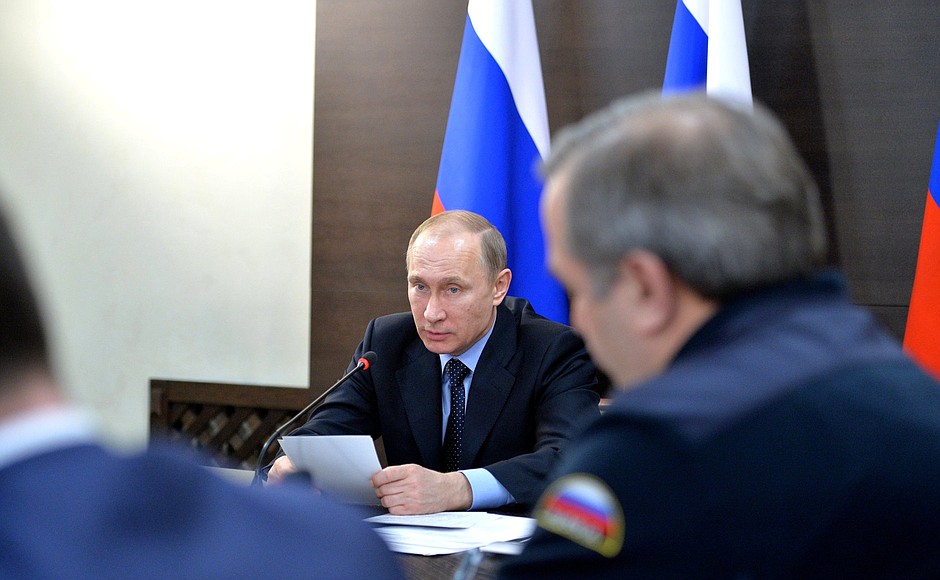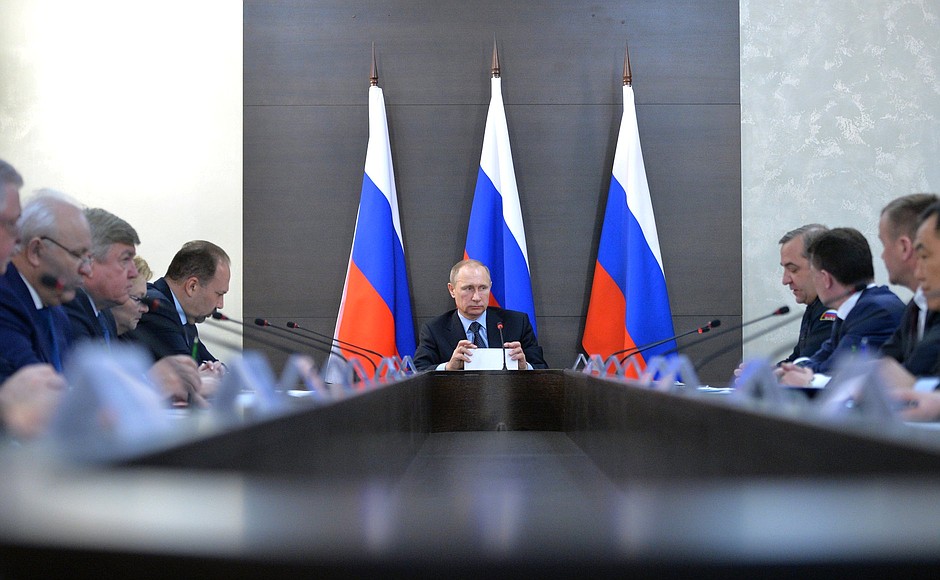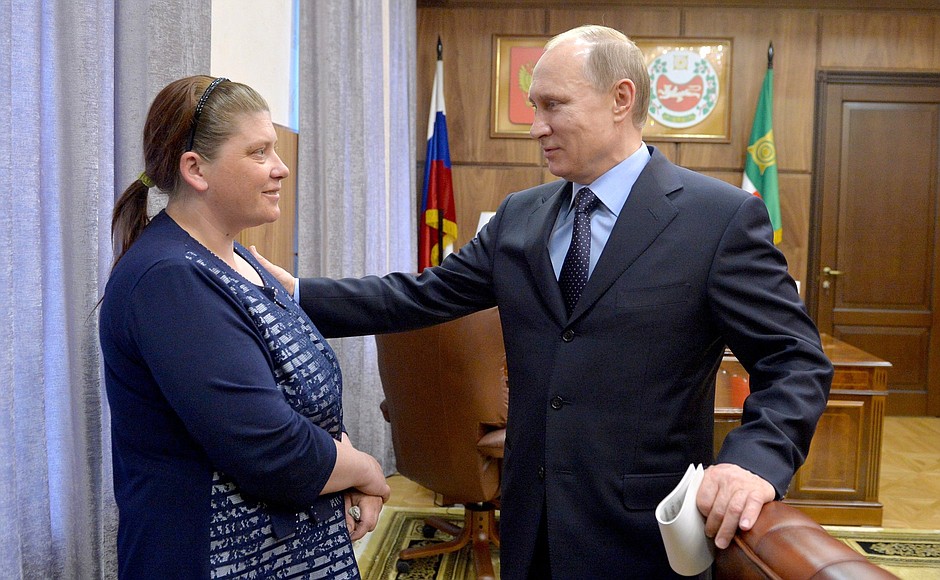
The President set the task to urgently identify the resources required to continue eliminating the consequences of fires and restore housing and other infrastructure facilities. All work should be completed by September 1.
Vladimir Putin said it is necessary to analyse ways of adjusting federal legislation regarding prevention of emergency situations and charged the Presidential Plenipotentiary Envoy to the Siberian Federal District Nikolai Rogozhkin with supervising the implementation of the decisions made and coordinating the activities of federal and local authorities.
Fires in the Siberian Federal District destroyed almost 2,000 homes, with the disaster zone covering 39 populated localities.
Earlier that day Vladimir Putin visited the shelter for fire victims in Khakassia and spoke with the people staying there.
* * *
Speech at meeting on emergency relief operations in Siberian Federal District
President of Russia Vladimir Putin: Good afternoon, colleagues,
Here in Siberia people have experienced a natural calamity. The consequences of the fire here in Khakassia and in the Trans-Baikal Territory are grave. We will see in the course of our meeting what is being done to help people and what additional measures need to be taken to fully rectify the situation.
As I have said, the consequences are grave. Preliminary figures indicate that some 2,000 homes were destroyed, leaving 2,000 families homeless. All this happened in 39 residential areas, affecting in total around 7,000 people.
See also
Emergency measures are already being taken. The Government has promptly allocated the resources required at this stage, which is 687 million rubles. This is obviously not enough to solve all the problems here. We will see today what needs to be done to make sure work proceeds at the required pace and with proper quality.
In the course of the meeting, I would like you to report how one-off financial assistance and compensations for the loss of property are being paid and how people who lost their houses are being accommodated in temporary shelters. I would like to once again stress that this aid is urgent.
At the same time, within the shortest time frame possible we need to carry out a detailed estimation of damages. Everyone here has plenty of experience and knows that this will determine how fast we can begin work to restore housing and infrastructure. Therefore, we should not waste any time.
The Emergency Situations Ministry, local and regional authorities should organise this work as soon as possible. They have to identify the resources needed, as I have said, to restore the transportation and social infrastructures and to construct new housing to replace what was has been destroyed by the fires.
I would like to repeat something I said during the Direct Line: reconstruction should be completed by September 1, so that by winter, people have a roof over their heads and children can go to school. I expect the deadlines to be met.
We need to provide jobs for the people, restore their jobs, and see what can be done to help agricultural enterprises. I have just spoken to the head of the Republic: these are mainly villages where people work their land. We have to help them restore their cattle and so forth. There is a lot of work involved.

I would like the federal authorities to provide every assistance to the regions, including the timely allocation of funding for the elimination of the consequences of the fires.
Another thing I would like to focus on.
We constantly talk about preventive measures to avoid fires, floods and other emergency situations and minimise their consequences. However, an analysis of the situation in the affected areas has shown that the efficiency of fire-fighting and other preventive measures is still low.
One more thing we need to point out. The human factor is a frequent cause of fires, unfortunately: carelessness with fire, arson, burning of grass and so forth. This happens year after year. In this connection, we need to consider what needs to be done in terms of federal and local legislation.
Besides, I instruct the Presidential Plenipotentiary Envoy to the Siberian Federal District Mr Rogozhkin to ensure control over the implementation of our resolutions, including those to be made today, and to coordinate the efforts of federal and regional authorities to eliminate the consequences of natural calamities.
Let us proceed to our work.
<…>

Let us agree on the following: we need some sort of centre, some integrator that would sum up the needs of each region and each individual affected, that will work out a single approach and keep it all under control.
I have already said that the Presidential Plenipotentiary Envoy will be responsible for overall coordination on the spot; however, we also need a similar coordinator within the Government. We will decide later and see how the work is to be organised. This is my first point.
The second is that Mr Zimin [Head of the Republic of Khakassia] has drafted a corresponding letter to the Trans-Baikal Territory and Krasnoyarsk Territory governors. We have to make sure we have a single approach to all the devastated areas.
I will not make any final decisions now on how this should be done in terms of budgeting, but it is obvious that, whatever way, the funding should be allocated for disaster clean-up operations, for providing specific aid to the people who were affected.
After this meeting, we will draft instructions and I will issue them within the next day or two.
I would like to thank you all and repeat what I have just said when meeting with the people. I will return in about a month or so to see how restoration work is proceeding.
Now I would like to ask Head of Khakassia’s regional Investigative Committee Mr Konevskikh to have a word with me.
Thank you.
